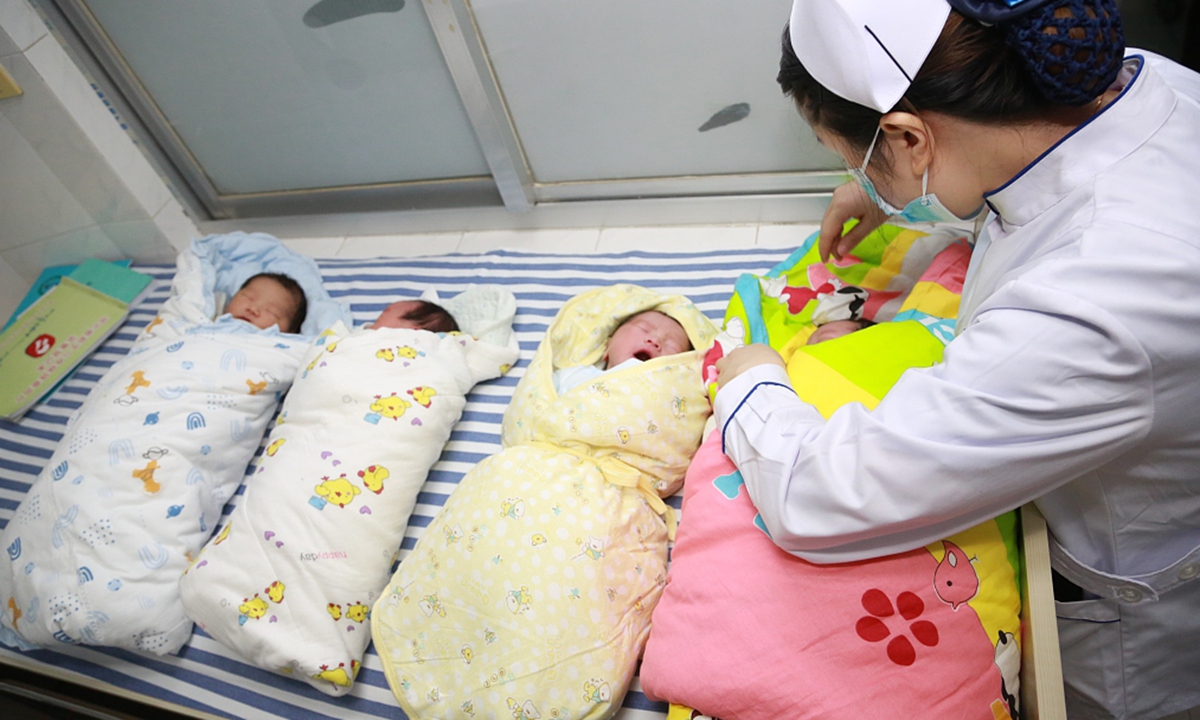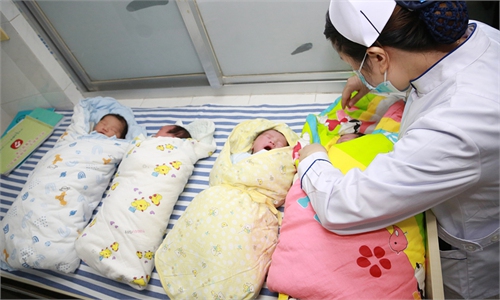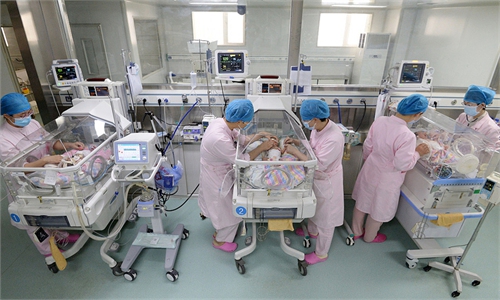
third-child policy Photo:VCG
A survey claiming that 80 percent of Chinese college students want to have two children sparked heated discussion about Chinese youngsters' fertility desire on social media platforms over the weekend.
Clarifying that the real survey result showed that 80 percent of Chinese students believe having two children to be ideal, doesn't mean that they will actually do so. Li Ting, a professor at the School of Sociology and Population Studies, Renmin University of China and lead author of the controversial survey, told the Global Times on Monday that the heated discussion about the topic mirrored common obstacles and the reluctance of young generations to have children.
Li's clarification came after the hashtag "survey showed 80 percent of Chinese students want to have two children" went viral on Twitter-like Sina Weibo. The content shocked many and some joked that "it can't be true. Maybe those who want two children are those who don't need to work and aren't burdened with house bills."
In order to measure the ideal number of children, gender preferences and desired children among university students, the survey asked questions - "how many children do you think is ideal for one family?" "How many boys and how many girls?" and "how many children do you plan to have?" according to Li.
The ideal number of children and the desired number of children are two different concepts. The result showed that the ideal number of children among the population of university students is 1.86, and more than 80 percent of them believe two children are ideal for their future family.
However, the average number of children desired by college students in this survey was 1.36, and nearly 50 percent of college students wish to have less than two children, Li told the Global Times.
The gap - between the ideal number of children and the desired number of children - also mirrors the obstacles and reluctance of young generations to have children, Liu noted, suggesting that more policies and measures be taken to propel fertility rates among young people.
The survey was first published in April 2022. The survey covered a representative sample of universities and asked 9,775 students from 30 universities covering 26 cities in 22 provinces, according to Li.
Nearly two years after China's implementation of the third-child policy, fertility-related topics remain highly discussed. The national population data for 2022, which are expected to be released on Tuesday at a press conference on the performance of the national economy, grabs much attention.
Several population experts believe that China's population may have contracted in 2022. Song Jian, another professor at Renmin University of China, recently said that because of low fertility rates, the nation's population decline seems to be coming earlier than previously thought.
The population size in the early stage of contraction will still be huge. China's population may begin to fall in 2022, but the total population will still exceed 1.4 billion in 2035 and stay around 1.3 billion in 2050, Yuan Xin, a professor of demographics from the School of Economics at Nankai University told media.




